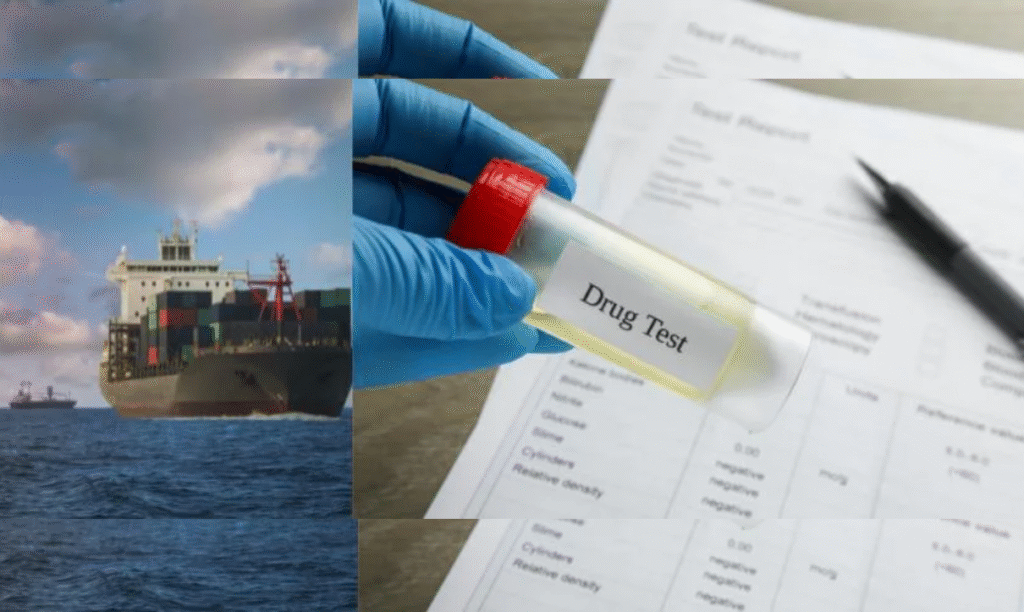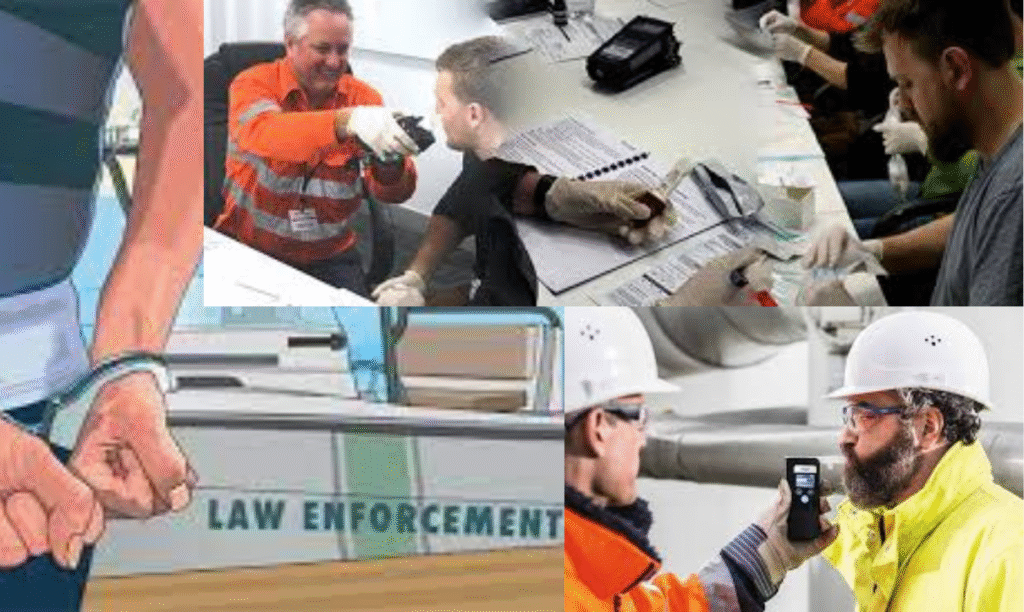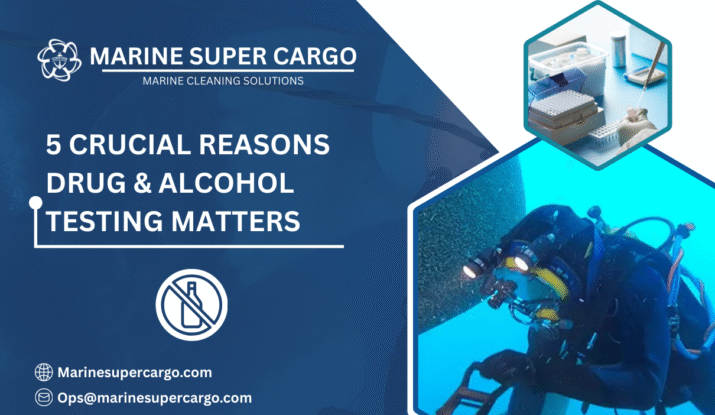Running a successful business is like steering a ship through unpredictable waters. You can have the latest technology, world-class operations, and a talented crew, but one hidden risk can throw everything off course: substance misuse. Drug and Employee Alcohol Testing might feel like sensitive topics, yet they play a critical role in protecting companies, large and small.
Whether you operate in shipping, logistics, construction, healthcare, or corporate offices, workplace safety and compliance rely heavily on proactive measures. Just as unseen barnacles slow a vessel’s speed and efficiency, unchecked alcohol or drug misuse can silently undermine productivity, safety, and reputation.
This guide takes you through the “why” and “how” of implementing alcohol and drug testing policies—framed in plain language, packed with practical insights, and relevant for industries where safety and compliance aren’t optional but essential.
Why Alcohol & Drug Testing Matters
Imagine piloting a plane with a distracted co-pilot or running a factory where one worker’s lapse could injure dozens. The risks aren’t abstract; they’re immediate, costly, and sometimes irreversible. That’s why so many industries adopt Employee Alcohol Testing programs.
At its core, corporate drug and alcohol testing achieves three things:
- Safety first: Protects workers, customers, and suppliers.
- Compliance: Meets local and international legal requirements, which vary by sector.
- Reputation & efficiency: Prevents damaged trust and avoids costly delays.

The Real Costs of Ignoring Testing
Failing to implement sound Employee Alcohol Testing policies can leave businesses vulnerable. Costs often show up in ways leaders don’t expect:
- Human costs: Increased accidents, near-misses, and health risks.
- Financial costs: Rising insurance premiums, litigation, downtime, and equipment repairs.
- Reputation loss: Clients value companies that protect their people and operations.
In shipping, for instance, ignoring alcohol norms can violate MARPOL Convention safety standards, expose operators to heavy penalties, and even result in vessel detention.
Types of Employee Alcohol Testing
Different industries require different levels of rigor. Common testing types include:
- Pre-employment testing: Ensures candidates are fit for roles with safety-critical demands.
- Random testing: Deters misuse and signals fairness across teams.
- Post-incident testing: Investigates whether alcohol contributed to an accident.
- Scheduled or routine testing: Common in high-risk industries like shipping or aviation.
Each type provides a safety net, like frequent hull inspections in shipping, ensuring no weak spot compromises the entire operation.
How Testing Supports Compliance
Regulatory bodies like the International Maritime Organization (IMO), International Marine Contractors Association (IMCA), and port authorities (via iaphworldports.org) emphasize strict safety standards. Similarly, many governments enforce legislation that mandates testing in high-risk industries, such as construction, oil and gas, and maritime shipping.
By adopting Employee Alcohol Testing, businesses show regulators, partners, and employees that safety is more than a rule—it’s culture.
Hidden Benefits of Alcohol Testing
Beyond compliance and immediate safety, alcohol testing offers deeper value:
- Boosts workplace trust: Employees feel safer knowing standards apply equally.
- Improves efficiency: Fewer incidents mean smoother operations.
- Strengthens leadership: Demonstrates commitment to corporate responsibility.
- Protects the environment: Especially in maritime, sober decisions prevent spills and accidents that harm ecosystems.
Lessons from the Maritime World
The maritime industry, where human error is the leading cause of accidents, offers valuable insight into why Employee Alcohol Testing must not be optional. MARPOL’s environmental protection framework highlights that accidents—often linked to poor judgment—can cause irreparable ecological damage.
Routine testing is akin to proactive hull cleaning: invisible buildup (or substance misuse) impacts long-term performance, but regular checks keep operations efficient, compliant, and sustainable.
Marine Supercargo Expands Services: Drug & Alcohol Testing for Safer Seas
Marine Supercargo, widely recognized for its global marine cleaning and compliance solutions, has now extended its expertise to Drug & Alcohol Testing services. This expansion is designed to help ship owners, operators, and managers navigate an increasingly regulated maritime environment.
In practical terms, ship crews are responsible for lives, cargo, and marine ecosystems. A single lapse caused by alcohol or drug misuse can set off a chain of failures: collisions, pollution incidents, or operational breakdowns. Marine Supercargo’s new professional testing services are crafted to meet regulatory standards set by organizations like the IMO and IMCA, ensuring vessels are compliant before reaching port or facing audits.
By integrating Employee Alcohol Testing into their safety ecosystem, maritime companies gain peace of mind. They reduce liability, improve crew welfare, and enhance efficiency, all while upholding the industry’s commitment to safer, cleaner seas.
✅ 4 Things to Check for Safety at Sea pic.twitter.com/dAxhJQ2i6U
— Marine Super Cargo (@Marinsupercargo) September 14, 2025
Addressing Employee Concerns
Testing should never feel punitive. Employees often resist programs if they perceive them as intrusive or unfair. The solution? Clear communication and transparency:
- Explain why Employee Alcohol Testing exists: to protect lives, not to punish.
- Ensure policies apply consistently to everyone.
- Provide access to support services and rehabilitation where needed.
By balancing accountability with empathy, businesses build stronger, more cooperative teams.

Future of Drug & Alcohol Testing
Just as hull-cleaning technologies evolved from brushes to advanced underwater robotics, drug and alcohol testing is moving toward innovation. Expect to see:
- More accurate non-invasive methods: Like saliva or breath-based tests replacing invasive samples.
- Digital tracking and reporting: Real-time compliance data shared with regulators or insurers.
- Integration with wearable technology: Monitors fatigue, stress, and impairment risks.
The future points toward smarter testing that emphasizes prevention, not punishment.
Key Takeaways
- Employee Alcohol Testing supports operational safety, compliance, and reputation.
- Ignoring it invites financial, human, and regulatory risks.
- Industries like maritime illustrate how testing safeguards both people and the environment.
Conclusion
Drug and alcohol testing isn’t just about catching someone in the act—it’s about building a resilient culture of safety. For businesses across industries, it protects employees, secures compliance, and ensures smoother, more profitable operations. In maritime, it prevents disasters as effectively as regular hull cleanings protect ships from hidden resistance.
If you’re seeking to strengthen your safety ecosystem, explore dedicated marine testing services and prioritize compliance at every level. Learn more and take proactive steps at CleanShip.co.
FAQs:
Q1. Why is Employee Alcohol Testing important in safety-critical jobs?
It prevents accidents, protects lives, and ensures decisions are free from impairment. Industries like maritime, aviation, and construction depend on clear judgment and quick responses.
Q2. What regulations apply to alcohol testing in shipping?
Global conventions like MARPOL and safety bodies such as IMO and IMCA require seafarers to remain compliant with alcohol limits, ensuring safe vessel operations.
Q3. How does testing support crew welfare?
Testing builds trust, promotes fairness, and identifies workers needing help. Offering support programs reduces stigma and improves overall crew wellbeing.
Q4. Can alcohol misuse affect vessel efficiency?
Yes. Just like biofouling slows ships, impaired decision-making affects schedules, cargo safety, and costs. Testing ensures crews remain focused, alert, and responsive.
Q5. What role does alcohol testing play in environmental protection?
Impairment increases accident risks, which can lead to oil spills or pollution. By enforcing Employee Alcohol Testing, companies ensure environmentally responsible operations.


